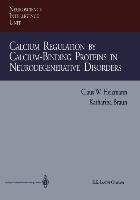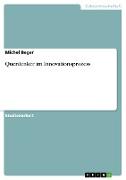- Start
- Calcium Regulation by Calcium-Binding Proteins in Neurodegenerative Disorders
Calcium Regulation by Calcium-Binding Proteins in Neurodegenerative Disorders
Angebote / Angebote:
Claus W. Heizmann and Katharina Braun ore than 10, 000 articles were published in 1994 on calcium, M 2 emphasizing the widespread interest and progress in Ca + 2 related research. This book focuses mainly on Ca + -binding pro 2 teins in the central nervous system, where Ca + ions have been found to activate fundamental processes such as release of neu rotransmitters, axonal flow, long term potentiation, cell motility, differentiation, secretion, and apoptosis. It has also been found that a number of neurodegenerative disorders have been attributed 2 1 to aberrations of intracellular Ca + homeostasis. 2 2 Intracellular Ca + levels and Ca + signaling within cells must 2 3 2 be tightly controlled. . Ca + overload as a result of seizures or ischemia is supposed to activate biochemical processes, leading to enzymatic breakdown of proteins and lipids, malfunctioning of 2 mitochondria, energy failure and ultimately cell death. There is 3 experimental evidence that electrically induced irreversible depo larization of hippocampal neurons, which may be an early indica 2 tion of neuronal damage, could be prevented by injecting Ca + chelators and thereby increasing intracellular buffering capacity. Thus, it is reasonable to assume that neurons containing certain 2 intracellular Ca +-binding proteins, and therefore having a greater 2 capacity to buffer Ca +, could be more resistant to degeneration.
Folgt in ca. 5 Arbeitstagen



